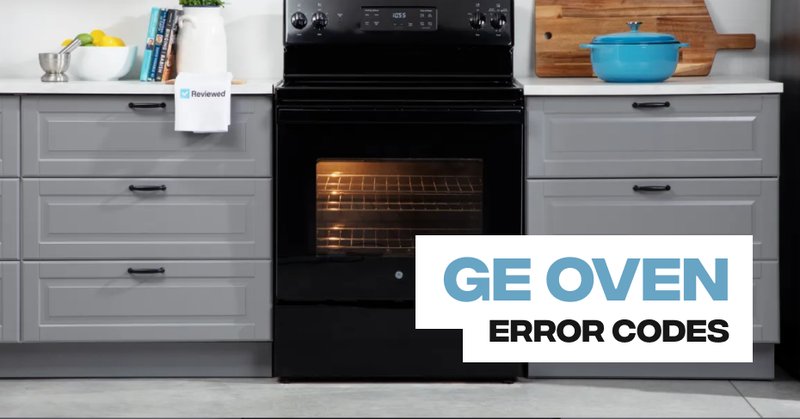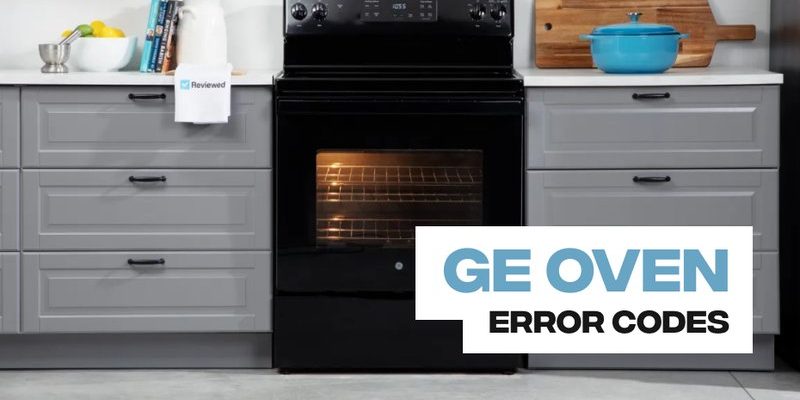
When home appliances act up, it’s usually a signal that something needs fixing. Think of an error code as your oven’s way of sending a distress signal, much like a car’s check engine light. The “HE” error often relates to a heating issue within your oven or range. But does this automatically mean it’s unsafe to continue cooking? Maybe, maybe not. We need to delve deeper to understand the implications of ignoring the message and whether it poses a risk to you or your delicious dinner plans.
Understanding the HE Error Code
The GE ovens’ “HE” error code often indicates an issue with the heating element. Just like a hairdryer that won’t heat up due to a blown coil, an oven can struggle to reach the right temperature if there’s something amiss. This problem could stem from a malfunctioning heating element, a broken thermostat, or even a faulty relay board. Each component plays a crucial role in ensuring your oven operates correctly, keeping your food at the perfect temperature.
Imagine trying to bake brownies in an oven that can’t quite get hot enough or, conversely, gets too hot. The “HE” error code isn’t just about an inconvenience; it directly affects how well your oven does its job. And if left unchecked, it could lead to undercooked or burnt meals, not to mention potential safety hazards. Overheating could cause damage to the oven itself or even start a fire, while underheating won’t effectively cook your food, possibly leading to food safety concerns.
So, when you see this code, it’s a sign that you should pause and consider troubleshooting. Continuing to use your oven without addressing this might seem tempting, especially if you’re in the middle of meal prep, but it’s akin to ignoring a warning light on your car dashboard — risky and not advisable.
Consequences of Ignoring the Error
Let’s chat about what might happen if you shrug off that pesky HE error code. If you decide to push on with cooking, you run the risk of further damaging your oven. Just like driving a car with a flat tire could lead to more costly repairs, using a faulty oven could mean more extensive issues down the line. This might include the need to replace parts or, in worse-case scenarios, getting a whole new appliance. Not to mention, a malfunctioning oven might not cook your food evenly, leading to meals that are less than appetizing.
Another consequence of disregarding this error could be your energy bill. A struggling oven might consume more electricity as it labors to maintain the correct temperature. Beyond financial considerations, safety is a paramount concern. Malfunctioning appliances represent a fire hazard. Something as simple as a temperature regulation issue can escalate if the oven overheats.
Your safest bet? Address the problem as soon as you notice it. It’s much like treating a sore tooth before it turns into a painful cavity. Ensuring your oven operates efficiently and safely should come first, even if it means a slight delay in your meal preparation.
Steps to Address the HE Error Code
OK, so your oven’s flashing that HE error code, and you’re ready to tackle it. Here’s how you can approach it: First, try the simplest fix — turn the oven off, wait for a few minutes, and then power it back up. It’s the kitchen equivalent of rebooting your computer. If the error persists, a deeper dive is needed.
Next, check the oven’s wiring and connections, keeping in mind that it’s best to unplug the appliance first to avoid any shocks. Sometimes, loose connections can cause the heating element to act up. If the issue isn’t with the wiring, it might be time to inspect the heating elements themselves. Ensure they’re intact and haven’t burned out, much like checking a light bulb that’s stopped working.
If these steps seem daunting, or if after trying them, the issue remains unresolved, it’s wise to call in a professional. Repair technicians can accurately diagnose and fix these issues, saving you time and potential frustration. Sometimes, the best DIY move is knowing when to enlist help.
Preventative Measures for Future Issues
Let’s face it, dealing with unexpected appliance issues is no fun. But here’s the good news: by adopting some regular maintenance habits, you can minimize the chances of such hiccups. Consider scheduling a routine check-up for your oven, similar to visiting a doctor for a check-up. This can help catch minor issues before they evolve into major problems.
Additionally, cleaning your oven regularly can improve its performance and lifespan. Baked-on grease and grime aren’t just unsightly; they can obstruct heating elements over time. Use appropriate oven cleaners and keep an eye out for any strange sounds or smells that might hint at underlying issues.
Finally, always refer to your oven’s manual for proper usage guidelines. Sometimes, simply following these can prevent problems from arising. By staying proactive, you can ensure that your GE oven and range continue to serve up delicious meals without a hitch. And isn’t that a recipe for peace of mind?
